The Search for God Page 2.1.5.3
Every single human walks around every day believing something. We believe or don’t believe that our spouse loves us. Or maybe we believe or don’t believe our parents or children love us. We might believe a certain political party is correct or a certain religion.

We provide data, facts, and statements based on what we value. We make references to authority and history. Sometimes we obtain data and believe that information immediately. After all, it came from the New York Times, or BBC, or Fox news.
Some people we trust implicitly and quickly and others we doubt and take everything they say with “a grain of salt.” The taste of what they say is unpalatable, we need to improve the flavor.
With each bit of data or word from the wise, we are comparing, testing, and evaluating new information with our current set of “facts” or beliefs. We are constantly bombarded by new information.
Sometimes we seek out new knowledge; many times, especially as we get older, set in our ways, and comfortable in our wisdom, anything new is simply propaganda.
Open To Changing Your Belief?
I don’t know what stage you are in life, nor what level of education you may have, or your current beliefs, but I know you have them. So let me ask you, what would it take to change your beliefs? How much evidence would be required?
For me, it depends. Probably for you as well. If I believe the best type of food is Indian food, is there a lot of pain if I now decide Korean food is my favorite? Probably not. I can switch back and forth, argue jestingly with my friends, but there is not much impact.
But what if I believe that Jesus is God incarnate or what if you believe that it doesn’t matter what god you believe in, as long as you are a good person? Does that now make a difference? Of course it does. These are more deep-rooted issues.
When I began my search for God, I believed I was a good person, probably better than 95% of the people in the world. Young people often think that way. So my search for God was an academic pursuit. I wanted to know the truth, the real truth, the whole truth, and nothing but the truth.
My pride demanded this knowledge. But I had to ask myself:
I wasn’t sure. I credit my study of Islam in helping me understand the gravity of this undertaking, this search for the being I called God. Even in my journal in college, I would write “Get this G” and then proceed to chronicle my daily struggles, feeling like I had no one else to talk to.
What Islam taught me was the concept of submission. In fact, the very word Islam means submission and a Muslim submits. If I came to the conclusion that God does indeed exist, would I submit? Will I not only listen to that being, but follow His advice and adjust the course of my life?
My answer? Yes and no. Mentally I knew I should, for if this God has all the abilities and attributes I just laid out, then yes, I should not only listen, but follow.
However, and there is always a however, my heart did not want to. Why? I didn’t want to change. I did not want to place myself under the authority of some being, because I am “good enough.”

The Evidence
What level of evidence will this submission take? There is the type of evidence established by head knowledge that this site attempts to address, but there is also heart knowledge. Here’s the rub:
We have two levels of evidence: the mind and the heart, the nous and the vous (in Greek). Most of us develop rational excuses to protect our hearts because the seat of real change is in the heart. That’s where my love of food arises.
My brain knows I need to eat something, my heart prefers Korean or Indian, a donut, something yummy, something that gives me pleasure. Sure, we have beliefs about math and science, cars, and construction, but how much will you cry when your car dies versus when your favorite person in the whole world dies?
I bring this up because when we discuss searching for God, we are searching for a being who evokes an emotional response. I can give you evidence all day long about someone’s existence, so even if you don’t like Donald Trump or Joe Biden or Arab people or Jewish people, the reality of their existence remains.
If God exists, not liking God does not invalidate His existence. So too, with God, our feelings do not change the reality of God’s existence. In our search for God, there is more that has to change than our mental evidence of truth and reality-our hearts must change.
Our feelings need an adjustment to conform to the truth of the reality of a being we don’t like. So please continue the search and journey seeking God, but if you find Him, or rather if He reveals Himself to you, will you be one who submits?
My heart didn’t want to until I realized how wretched I truly am; hurting one who I claimed to have loved, breaking my own promise; how could I ever call myself good?
What Next?
- What is the crucial concept?
- Everyone has an emotional or intellectual threshold when once reached or breached will result in different levels of certainty of belief.
- Why is that significant?
- People argue over whether someone’s level of evidence is sufficient for belief rather than asking how much more evidence they require.
References And Links
- Compelling Truth – Jesus is God incarnate
- Patheos – Islam means submission

Leave a Reply